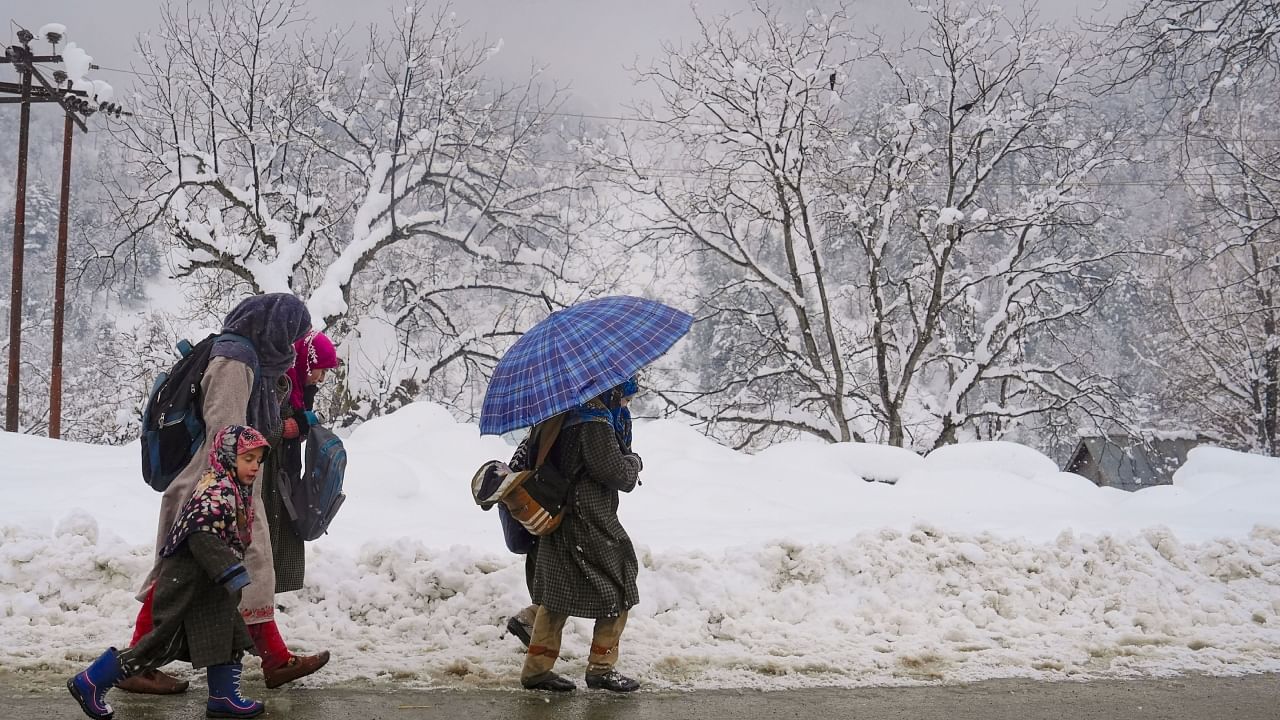
The authorities have pressed men and machinery to clear off the snow from vital roadways.
Credit: PTI Photo
Srinagar: The 40-day long harshest winter period known locally as the 'Chillai Kalan', which started on December 21, ended on Monday, January 29, with Kashmir receiving scant snowfall during the period.
During ‘Chillai Kalan’, Kashmir remains in the grip of cold wave conditions with maximum chances of snowfall and rainfall. However, this season, the day temperature was above eight degrees normal due to dry weather conditions.
During nights, however, the temperature remained below freezing point.
The 40-day period passed off with no snowfall in Srinagar and other plains in the Valley. The upper reaches of the Valley received light to moderate snowfall many times but overall the snowfall was much below normal.
It is the snowfall during this period that adds to the glaciers of the Valley and replenishes the perennial reservoirs that feed the rivers, streams, and lakes in Kashmir during the summer.
‘Chillai-Kalan’ is followed by a 20-day long ‘Chillai-Khurd’ (small cold) that occurs between January 29 and February 18 and a 10-day long ‘Chillai-Bachha’ (baby cold) which occurs from February 18.
Meanwhile, a local MeT official said there is a forecast of light to moderate rain and snow at many places in J&K in the next five days. “There is a possibility of heavy snowfall over isolated higher reaches of Kashmir,” he said and added that the weather system may lead to temporary closure of roads of higher reaches and important passes like Sinthan pass, Mughal Road, Sadhna, Razdan and Zojila passes.
The ski-resorts of Gulmarg and Gurez, and higher reaches of Kupwara in north Kashmir received fresh snowfall on Monday, officials said.
They said that the Sonamarg tourist resort in the Ganderbal district of central Kashmir has also received fresh snowfall. There are reports of snowfall in Zojilla Axis, on the Srinagar-Leh Highway, as well as in Drass in Ladakh Union Territory, they added.
The authorities have pressed men and machinery to clear off the snow from vital roadways. The plain areas in the valley were lashed by intermittent rains.
(With PTI inputs)